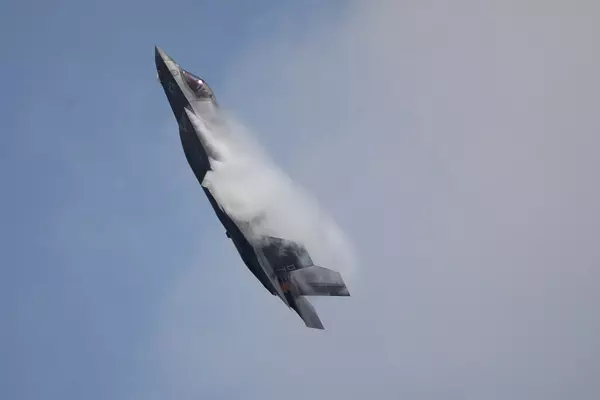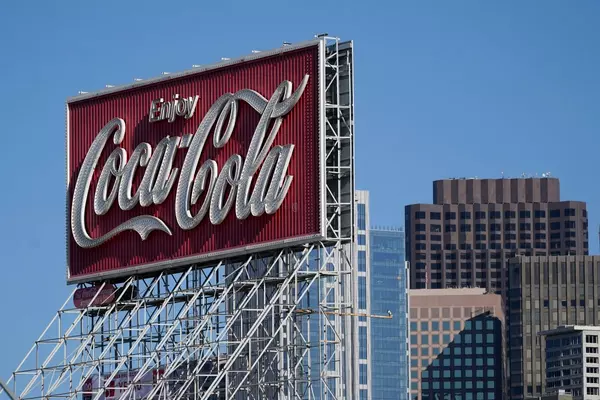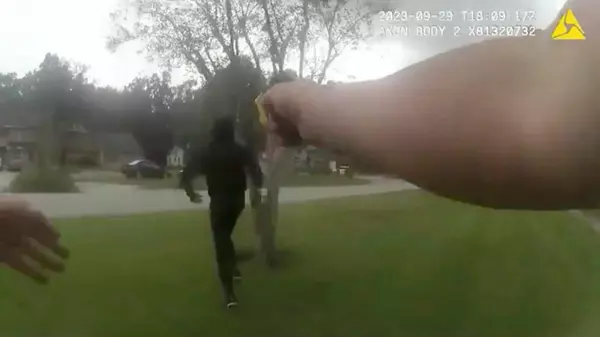
Pay your writers, or we’ll spoil the ending of Succession.” That was one of the witty signs being brandished on the streets by striking Hollywood writers when I was back in Los Angeles a couple of months ago.
Another of my favourites read: “I’m on strike, YOU write the damned sign.” It was my first experience of a writers’ strike; the last one, in 2007, lasted 100 days and cost the city an estimated $2 billion.
This current strike is expected to be far longer and much more costly. When writers down tools, all scripted TV and film productions grind to a halt — meaning tens of thousands of set designers, caterers, costume makers, editors and other workers suddenly have no income.
The economic and social ripple effects are massive. LA is a one-industry town, so Hollywood shutting down has a dampening effect on everything, like if Glastonbury’s local council decided to ban summer music festivals.
Many were holding up signs about AI — I liked one that read ‘ChatGPT doesn’t have childhood trauma’
But what I found fascinating about the writers strike is how many people on the picket line are holding up signs that mention artificial intelligence.
I really liked the one that went: “ChatGPT doesn’t have childhood trauma.” And I couldn’t help smiling at a Star Wars-themed one too: “Scripts written by AI? R2-FU!”
The reason for the AI-related signs is that the writers strike is the first industrial action anywhere in the world where ChatGPT is an absolutely central part of the dispute.
Writers are worried that jobs could disappear if Hollywood studios start using AI to help write scripts — so they’ve taken to the streets and halted production of both scripted TV shows and films until they get a deal they’re happy with.
As protection against being replaced by software, striking writers are demanding that a minimum number of human scribes should be employed per TV show, irrespective of how many are actually needed. The studios are pushing back, and the outcome of the industrial dispute could have ramifications globally.
As the economist Tyler Cowen demonstrates so well in his book The Average is Over, new technologies can have a major effect on the labour market, potentially widening inequalities and leading to the disappearance of many jobs, as well as the creation of new ones. These are big issues for politicians to grapple with, and will require fresh policy ideas. But to what extent should jobs be totally insulated from technology changes?
Lots of roles in high street banks have sadly disappeared in recent years as people shift to online banking — should those jobs have been protected? Or how about staff working in back office roles that have been replaced by software over the past decade — should that shift have been stopped?
As AI tools become ever more capable, this debate is sure to widen — with jobs as wide ranging as driving a truck to being a doctor potentially replaceable by software in the years ahead.
So the outcome of the writers’ fight for protection against AI won’t only affect the content industry, it will have major implications for other sectors being reshaped by new technologies. How will it all end? In true Hollywood style, there are bound to be lots of plot twists to come, and we’ll have to stay tuned to find out.

Even the Spider-Verse can’t convert my son to the cinema
Even though my wife used to run a film festival, she doesn’t like going to the cinema very much. So I’ve been quietly encouraging my five-year-old son to become my movie buddy.
The other day I took him to the Odeon on Tottenham Court Road to see his first film — the blisteringly inventive Spider-Man: Across the Spider-Verse, starring Shameik Moore, inset, as the voice of Miles Morales.
I’d been looking forward to the film for ages; it’s the sequel to 2018’s critically acclaimed Into the Spider-Verse, which was amazing, like a cross between Pixar and John Hughes.
Anyway, everything was going fine at the Odeon until about two hours in, at which point my little boy started crying “why is it so long?” and “when will it end?”, so I had to take him home, meaning we missed the last 20 minutes or so.
So if you see me on the Tube, please don’t give away the ending. And something tells me it’ll be a while before my son can sit through the three-and-a-half hour director’s cut of Apocalypse Now with me.







